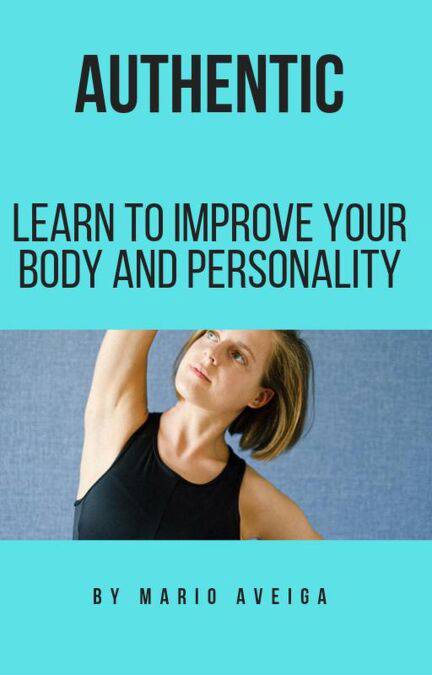
- Afhalen na 1 uur in een winkel met voorraad
- Gratis thuislevering in België vanaf € 30
- Ruim aanbod met 7 miljoen producten
- Afhalen na 1 uur in een winkel met voorraad
- Gratis thuislevering in België vanaf € 30
- Ruim aanbod met 7 miljoen producten
Omschrijving
Description
Chapter 1:
Body image basics
Episode 2:
Learn to love yourself
Chapter 3:
Get involved in a sport you love
Chapter 4:
Stop comparing yourself to others
Chapter 5:
Wear the right clothes
Chapter 6:
The dangers of a bad body image
Ending.
Using methods ranging from cosmetic surgery to miracle diets to liposuction, a growing number of women are striving, with some degree of panic and, more often, to their own harm, to match the elemental template of beauty.
Has the situation decreased in recent decades? The answer is undeniably yes. Men don't seem immune either.
In 1987, a survey on appearance and weight revealed that only 12% of respondents indicated little concern about their appearance and said they did not do much to improve it. The results of this survey are similar to those of many studies in which participants are chosen at random: people feel intense pressure to look good.
Weight has become so important to body image; it is the focus of dissatisfaction in both studies and in the area showing the greatest increase.
Body absorption has become a social mania. We have become a land of appearance junkies and fitness supporters, pioneers driven to think, speak, strategize, and care about our bodies with the same fanatical devotion we gave to putting a man on the moon. Abroad, we fight for world peace. At home, we have announced war to our bodies.
Of all the industrial achievements of the 20th century that influence the way we view our bodies, none have had a stronger effect than the rise of the mass media. With movies, magazines, and television, we see beautiful people as often as we see members of our own family; the net effect is to make great beauty look real and affordable.
Many women totally avoid the mirror; those who do look can scrutinize, but still do not see themselves objectively. Most of us only see distressing flaws in great detail. Other people still see the fat and flaws that used to be there in the teenage years, even if they are no longer there.
A woman today sees her reflection in a mirror and finds it deficient, and is then swallowed up by a quest to adapt to the reflection that the media has conditioned her to anticipate is conceivable. She works harder and harder to obtain what is probably inconceivable. Putting aside the hours movie stars spend on makeup and hair, forgetting how simply and well the camera can lie, you aim for a man-made composition of what you think your reflection should be.
We could be heavy and think that life is not worth living since we do not match the physical ideal of our culture. Our self-image has become too plastic, too tactile.
It relies too much on fleeting moods, on what we feel is expected of us and how we feel that we are lacking. It is not sufficiently subject to an immutable inner sense of ourselves. We grow larger or smaller, in our mind, as a reaction to the image of woman that the modern order has prompted us to idealize.
We are trapped in a world of obsessive self-criticism, where what we see is not at all who we really are. The mirror is the modern curse of women.
Some call that obsession with appearance vanity, however that's not the point. We are responding to the deep psychological meaning of the body. In fact, appearance impacts our sense of identity and how people react to us; always has, always will. What is different today is that the body and its appearance have become a substantial part of our self-esteem...........
Specificaties
Betrokkenen
- Auteur(s):
- Uitgeverij:
Inhoud
- Taal:
- Engels
Eigenschappen
- Productcode (EAN):
- 9781393929987
- Verschijningsdatum:
- 11/07/2021
- Uitvoering:
- E-book
- Formaat:
- ePub

Alleen bij Standaard Boekhandel
Beoordelingen
We publiceren alleen reviews die voldoen aan de voorwaarden voor reviews. Bekijk onze voorwaarden voor reviews.











